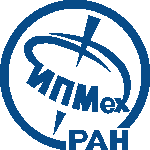
|
ИСТИНА |
Войти в систему Регистрация |
ИПМех РАН |
||
Telecollaboration as a viable didactic solution of learning foreign languages and developing cultural awareness доклад на конференции
- Автор: Nazarenko A.L.
- Международная Конференция : 10th Annual Global Partners in Education Conference
- Даты проведения конференции: 15-17 мая 2017
- Дата доклада: 17 мая 2017
- Тип доклада: Устный
- Докладчик: Nazarenko A.L.
- Место проведения: Greenville, North Carolina, США
-
Аннотация доклада:
Telecollaboration is the practice of engaging classes of geographically dispersed learners in online intercultural exchange using Internet communication tools for the development of language and/or intercultural competence. Telecollaboration offers opportunities for universities to support their internationalization strategies and engaging learners in dialogue with peers in distant parts of the world in order to prepare them to personal and professional realization (themselves) in a globalized world. The most well-known and well-developed models of telecollaboration are the bicultural and bilingual. One of them is Teletandem. Teletandem is learning foreign languages in a group of two partners (native speakers of two different languages) reciprocally from each other, communication via technologies. Didactic Principles of Teletandem: • learner-centredness; • autonomy of learning; • complete parity of the partners and languages; • strict separation of the languages during learning sessions (using each language exactly half the time without mixing them). The experience of FFLAS MSU (Russia) - VCU (NC, USA) Teletandem Project is discussed. The structure of the project included: 1. Learning languages autonomously in tandems, selecting materials for discussion, preparing presentations 2. Presenting their 'product' for everyone to discuss at the final general videoconference The Results obtained : • Students acquire communicative competence learning authentic foreign languages via communication • Students acquire sociocultural competence learning languages in a cultural context • The level of Students' Satisfaction is high
- Доклад на конференции выполнен в рамках проекта (проектов):
- Добавил в систему: Назаренко Алла Леонидовна